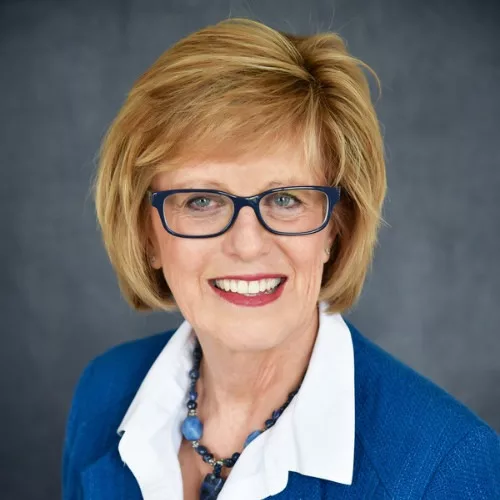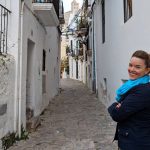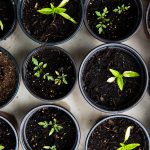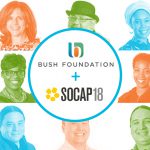We will introduce a new content series at SOCAP17. Five Guest Curators, all leaders in the impact space, are now developing their own SOCAP Spotlight sessions. Each Spotlight will dive deep into a key concept within impact. Guest Curator CultureBank’s Spotlight will focus on their new model for investing in communities, the potential for artist entrepreneurs to uncover untapped opportunities within communities, and how we can all work together to build cultural movements that lead to lasting, systemic change.
The Core Inquiry of CultureBank’s Spotlight Sessions:
What if the path to an economy of shared prosperity is not through the capital markets?
CultureBank is a new investment model that’s rooted in the belief that artists are uniquely equipped to transform underserved communities. Deborah Cullinan and Penelope Douglas are the Founding Partners of CultureBank. Deborah is the CEO of Yerba Buena Center for the Arts (YBCA), co-founder of ArtsForum SF, a co-chair of the San Francisco Arts Alliance, a member of the Community Arts Stabilization Trust and a former member of the Board of Mission HUB LLC and SOCAP. Penelope is a pioneering social entrepreneur, community development investor, co-founder and CEO of Pacific Community Ventures, and former Chair of the Board of Mission HUB LLC and SOCAP. We recently sat down with Penelope and Deborah to discuss their SOCAP17 Spotlight Sessions.
SOCAP: What are the core concepts you plan to explore in your Spotlight Sessions at SOCAP17?
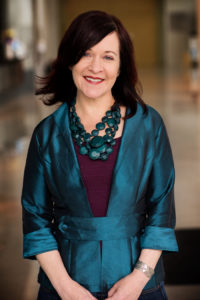 Deborah Cullinan: The core line of inquiry for us is around the question of equity and the role equity plays in social impact work. We are very interested in sharing our concept for CultureBank as a jumping off point for a conversation about larger issues. Driving questions include: What do we really mean by equity? What are we as a community of changemakers willing to give up for it? How much evolution or revolution are we as a community up for? How do we and how will we all work together toward a future that is more equitable for all?
Deborah Cullinan: The core line of inquiry for us is around the question of equity and the role equity plays in social impact work. We are very interested in sharing our concept for CultureBank as a jumping off point for a conversation about larger issues. Driving questions include: What do we really mean by equity? What are we as a community of changemakers willing to give up for it? How much evolution or revolution are we as a community up for? How do we and how will we all work together toward a future that is more equitable for all?
Penelope and I have been working together for a long time now. I have been very fortunate to be able to work with her and learn from her expertise and experience particularly about the social capital markets, social entrepreneurship and the impact space. One of the things we have a shared passion for is the role that art and culture play in social change. Together, we have been striving to assert the idea that culture precedes change, that cultural movement–the changing hearts and minds–is often what results in lasting change.
We often talk about how money can be transactional. A win in the marketplace or in the courtroom, for example, is transactional and easily overturned. Things can be easily repealed, annulled, set aside if we haven’t done the work of arriving at a new way of thinking about who we want to be as people.
What are some of the primary challenges you hope to address in your Spotlight conversations?
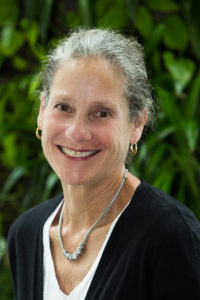 Penelope Douglas: We have seen that the consequences of living in poverty are increasingly severe. The challenge is to find a new paradigm. We’re working with the belief that a critical part of this new paradigm involves understanding and embracing the notion that every community–and every person in every community–has assets of value to offer. Currently investors, even impact investors, broadly speaking, do not yet have the capacity to understand how to discover and develop all the assets of a community.
Penelope Douglas: We have seen that the consequences of living in poverty are increasingly severe. The challenge is to find a new paradigm. We’re working with the belief that a critical part of this new paradigm involves understanding and embracing the notion that every community–and every person in every community–has assets of value to offer. Currently investors, even impact investors, broadly speaking, do not yet have the capacity to understand how to discover and develop all the assets of a community.
If we come down one notch in altitude, our interest is in the challenge of understanding the power of that opportunity, and the power of artist entrepreneurs as entrepreneurs who can, better than anyone, unleash the opportunity that those hidden assets represent, and shift culture at the same time so we can generate long term community wealth in a culture of shared prosperity. And by doing that we can contribute meaningfully to the challenge and opportunity of outcomes-based investment in our communities.
From your perspective, why is this a critical conversation that the SOCAP community should be having now?
Deborah Cullinan: I think it is critical because we as a community of impact investors have been making investments to the tune of billions of dollars and we are not solving the problem of inequity–with just a few people owning and controlling the world’s wealth and so many without access to basic subsistence. In fact, inequity continues to rapidly increase. Yet, we know that artists are working across this country every day–having deep impact one person, one community at a time. These artists have significant contributions to make around transformation and working with community in order to understand and leverage community assets of all kinds but they are largely undercapitalized. If we don’t start really thinking about valuing community assets as much as we value financial assets then the work of the SOCAP community cannot move forward.
How has CultureBank’s work shaped your perspectives on this theme?
Deborah Cullinan: At Yerba Buena Center for the Arts our mission is to generate culture that moves people. Fundamental to that is the idea that culture precedes change. We believe that arts organizations of all shapes and sizes across this country should be reorienting and thinking of themselves as citizen institutions and incubators of breakthrough ideas. Those ideas don’t always have to be arts focused or limited to performances or exhibitions. They can also be policy ideas, or in the case of CultureBank, they can be ideas that could shift a whole system.
Artists are in the business of helping us see a future that is different from what we are experiencing today. And what better context than an arts institution that can bring together all kinds of thinkers and makers to really grapple with difficult questions. So for us CultureBank is one of the most perfect examples of what we can do as a cultural incubator if we believe we can do it.
Penelope Douglas: It is very hard for institutional investors and even for foundations to recognize the power of artist entrepreneurs as central to investment strategies overall. In some ways that is the most critical part of this conversation for the SOCAP audience. I think it is an extremely important and potentially challenging conversation but I have been inspired by SOCAP’s audiences every year and believe I and we will be inspired by this conversation too.
What have you found most inspiring as you work to develop these sessions?
Penelope Douglas: For me the most inspiring thing of the last several months has been the engagement and collaborative manner among such a diverse group of individuals and organizations who have come together to help develop and refine the CultureBank model. A number of SOCAP community members have been part of our process. One collaborator told me that since participating in this process, CultureBank is on his mind all the time–in every conversation. It is transforming the way our collaborators work. To me that has been extremely inspiring.
Deborah Cullinan: I feel very much the same. What is inspiring to me is a group of people who have dedicated their lives very differently, coming together and realizing we all need each other. To be with people from the Federal Reserve Bank, impact investment leaders, leaders in the arts from across the country, and social finance experts all together in a room is an extraordinary thing. To me that is how we break through–by all coming together.
What do you hope attendees or participants will bring with them when they come to your sessions?
Deborah Cullinan: Bring an openness and a willingness to think as your best self. Believe that we can actually create systems and opportunities that truly provide a more equitable future for many more people. Bring your best ideas. We know that we are not alone in trying to forge a different model that a lot of people think is wild, but might result in a breakthrough. We are going to want to put all of those ideas together. The more the merrier.
Penelope Douglas: Bring whatever makes you feel brave. Because we need everyone to be open and we need everyone to be at their bravest. We need to try to open up as much opportunity for all of us to consider these questions carefully. I think it is going to require a lot of courage.
What do you hope attendees will leave with?
Penelope Douglas: One important thing for me would be that they leave with a good understanding of some of the core concepts of the CultureBank model. In addition, people will understand that for our CultureBank model, the definition of community is not just defined as a place, but also by common interest in an issue. There are many types of communities.
Deborah Cullinan: Yes, a good understanding of the model and ideas that people can bring to their own work. Also, greater drive for collaboration and generosity of spirit.
What progress do you hope to see in this area within the next 10 years?
Penelope Douglas: We hope that CultureBank, the entity that assists communities of all sorts to identify and develop assets of value, will be flourishing. That in 10 years there will be multiple pools of investment that are forming around those opportunities.
In ten years we will have not yet seen the full impacts of our first demonstration CultureBank investment pool, because that will take a generation. But we’ll have certainly have developed substantive outcomes and the accrual of substantive of value in CultureBank communities based on all kinds of assets. We’ll have increased the investability of these communities for a wide variety of stakeholders and the flow of investment will have increased from a variety of different parties.
Deborah Cullinan: To that I would add, from the arts and the paradigm for arts and culture in our country and our world, from that side of the equation, it is always my hope that artists are considered to be essential components of change and that art is not marginalized or too precious or inaccessible, but rather it is an integral part of any healthy life and any healthy community. The more that we can understand artists and arts organizations as resources toward a better future, the better. That is a big part of this work.
Related reading: SOCAP Voices: A Conversation on Bridge Building, Art, and Entrepreneurial Ecosystems with Social Impact Pioneer Penelope Douglas.
Other Guest Curator Spotlights:
Additional guest curators are developing sessions that will debut on stage at SOCAP17 in October. We will share interviews with all of our guest curators in the lead up to the conference including:
- Mission Investors Exchange
- Jed Emerson
Follow the SOCAP blog for sneak peeks into our guest curated sessions. Get your ticket to SOCAP17 to join in the conversation.
